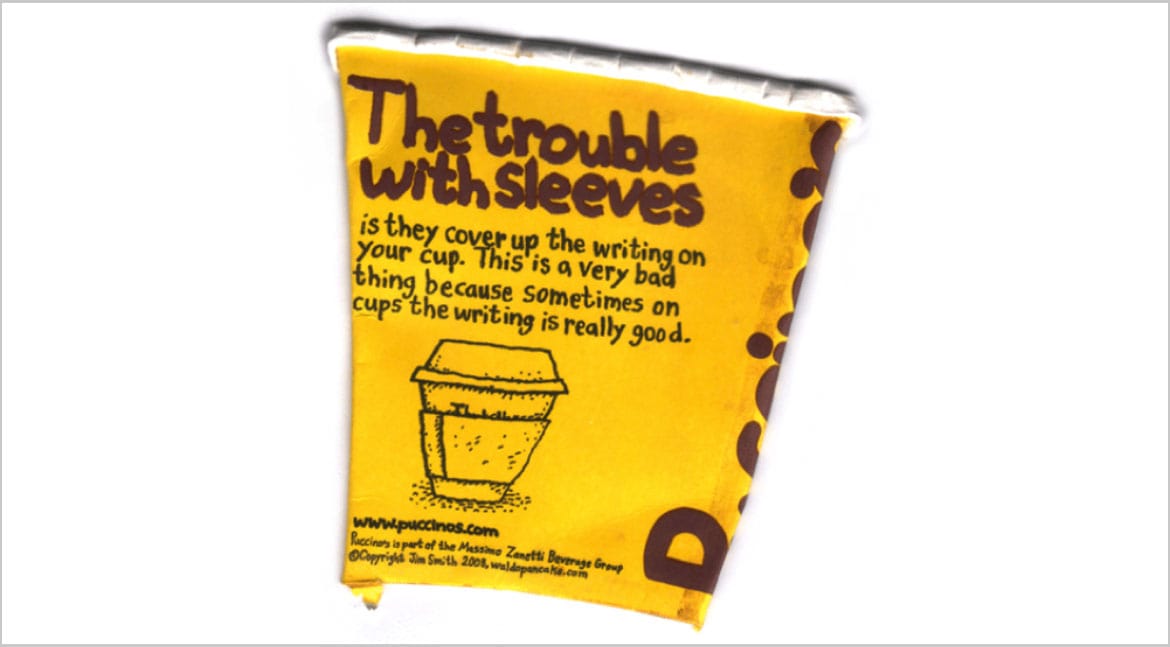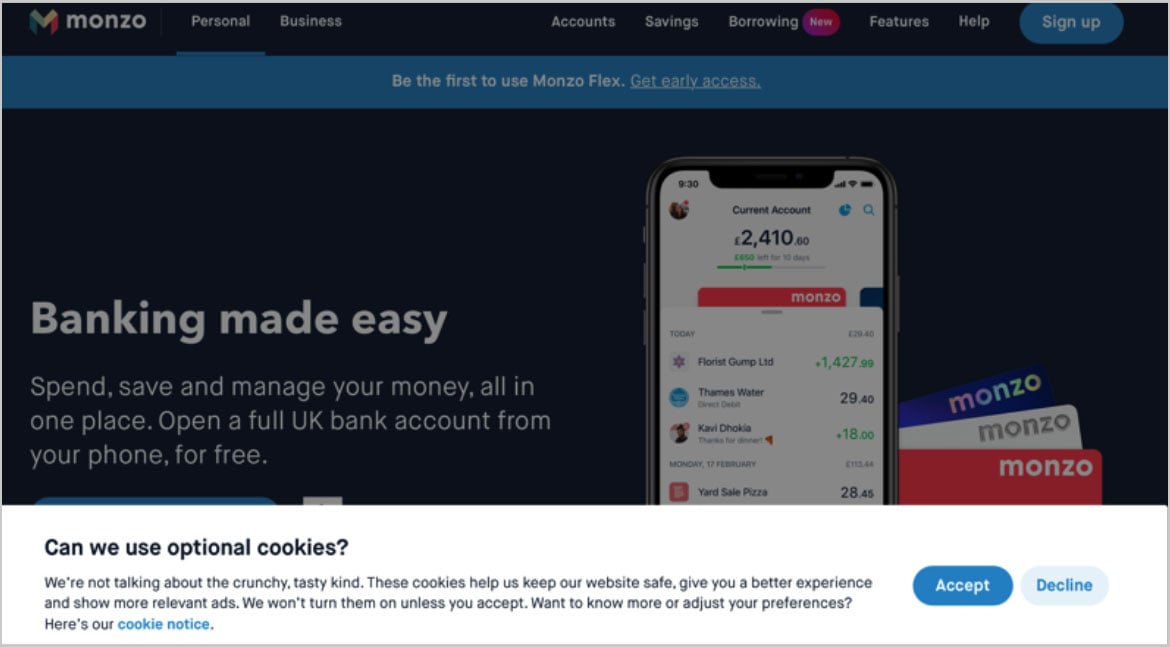Table of Contents
Copywriters and copywriting: everything you need to know
The profession of copywriter is booming. But what is a copywriter? What does their job involve? How can we recruit copywriters who can help our business to communicate better? We answer these questions and more.
Let’s get to it.
What is copywriting?
Copywriting is a form of writing used in marketing, advertising, sales and corporate communication. Before writing, however, comes the most important part: planning. Before a text is written, it has to be planned to meet the “brief”, the document that outlines the customer or company’s needs.
When a radio ad grabs your attention.
When you choose a particular brand of laundry powder in the supermarket because you were won over by the tag line.
When you opt for a mobile phone provider after clicking on a banner ad and reading their sales proposition.
When a brand appeals to you.
When any of these things happen, it’s because copywriting has had the desired effect: to convince you, to encourage you to act, to leave you with a positive memory or emotion.
Whenever you need for text that describes a product, promotes a company or creates a connection with customers, you need a copywriting professional. You need a copywriter.
What is a copywriter and what do they do?
A copywriter is a professional who writes text (copy) and creates content for the marketing and communication needs of brands, organisations or political parties.
While at the turn of the millennium the profession of copywriter was primarily focused on producing copy for TV, radio and print advertising, with the advent of the digital era demand for effective copy has exploded. Companies were eager to harness the power of the internet and social media, and this revolution led copywriters to develop new skills: writing for search engines (better known as SEO copywriting), writing digital editorial plans for social media and creating content for blogs, newsletters, advertising campaigns and more.
Any company that wants to communicate effectively, persuasively and compellingly cannot do without the pen of a good copywriter.
What persuasive copywriting means
While we often hear the term “persuasive copywriting” (or “persuasive writing”) bandied about, there is no firm definition of “persuasive copywriting”. Copywriting, good copywriting, should by its very nature be persuasive. It should arouse emotions, create deep connections and get people’s attention with the evocative power of words.
What is SEO copywriting?
We’ve seen that, for almost 20 years now, copywriting has become a fixture of digital channels. There are even copywriters who specialise in writing for digital, known as SEO copywriters. SEO copywriting involves writing copy that is optimised for search engines (Google in the UK, given that it’s the leading search engine). The goal of SEO copywriting is to obtain, organically (i.e. without spending on advertising), maximum visibility on Google.
This branch of copywriting requires specific skills. Here are the basics:
- Knowledge of how Google search works
- Keeping up to date on changes to search engines and their algorithms
- Knowledge of WordPress and the leading CMS
- Knowledge of HTML
- Ability to pick the best keywords
- Ability to take advantage of user intent (search intent)
- Content design skills for effectively laying out the page
Since pretty much all firms are now online, it goes without saying that the del SEO copywriting is fundamental. It’s not enough just to communicate: you need to be found.
Some examples of effective copywriting
Copywriting is effective when, first of all, it grabs people’s attention. When it makes us stop and read what the company has to say to us. When it makes a brand memorable. When it pushes us to act, be it clicking a button, subscribing to a newsletter or buying a product. To better understand what we mean by “effective copywriting”, we’re going to show you some examples.
NeN is a new player in Italy’s gas and electricity market. It has positioned itself as a bubbly, light-hearted, friendly and witty personality. To grow brand awareness, the NeN team produced super creative banners. In this example, we see a pop-up banner with text that has been cut off at the top and bottom. The text says: “This banner is too small for everything that we want to say to you”. It’s an effective ad because it piques readers’ interest and encourages them to click to find out more. And it’s not just about the copy: it’s also about the design and idea behind everything.

Puccino’s is a chain of coffee shops with a strong personality. A personality that shines through in its copy, like the text that appears on its sachets of sugar and mugs. Here, the copy is effective because it brings a smile and is perfectly aligned with Puccino’s personality.

Monzo is an online bank that has shown real skill in creating its verbal identity. Look at how it handles cookie banner text. Amusing, right? Here too, the copy works because it’s in keeping with Monzo’s sunny, open and friendly personality.

Let’s look at one last example of effective copywriting. It comes from the official UK government website, GOV.UK, and it’s great example of UX (user experience) and simple language. The copy that we read in the site header shows us how you can be clear and warm even by writing simply. The motto “simpler, clearer, faster” nicely sums up the philosophy adopted by GOV.UK.

How to hire a copywriter for your business
So far, we’ve seen what copywriting is, what copywriters do and how copy can be effective. We’re going to finish this deep dive into copywriting by looking at how to hire a copywriter. First of all, let’s look at the main skills a copywriter should have.
The hard skills of a copywriter:
- Ability to read and draw up a brief
- Ability to understand the needs and behaviours of consumers
- Excellent command of the English language
- Ability to reformulate the same message in different ways, depending on the channel and audience
- Ability to write flawlessly (no typos)
- Mastery of Microsoft Office
The soft skills of a copywriter:
- Creativity
- Proactive attitude
- Problem solving
- Collaborative mindset
- Ability to work quickly
- Lateral thinking
As with all professions, pay is commensurate with seniority.
Before hiring a copywriting expert, you should think about the main tasks that they will have to perform in their working day. This will help guide you towards professionals with the right skill set for your needs. It’s one thing to work on brand names, and quite another to write articles for the web. You should also ask candidates to show you a portfolio of their work. And look at their LinkedIn profiles: they can tell you a lot about their soft skills! Lastly, consider setting a practical test to assess candidates’ skills.
Best of luck. It’s been a real pleasure to take this journey into the world of copywriting with you.



